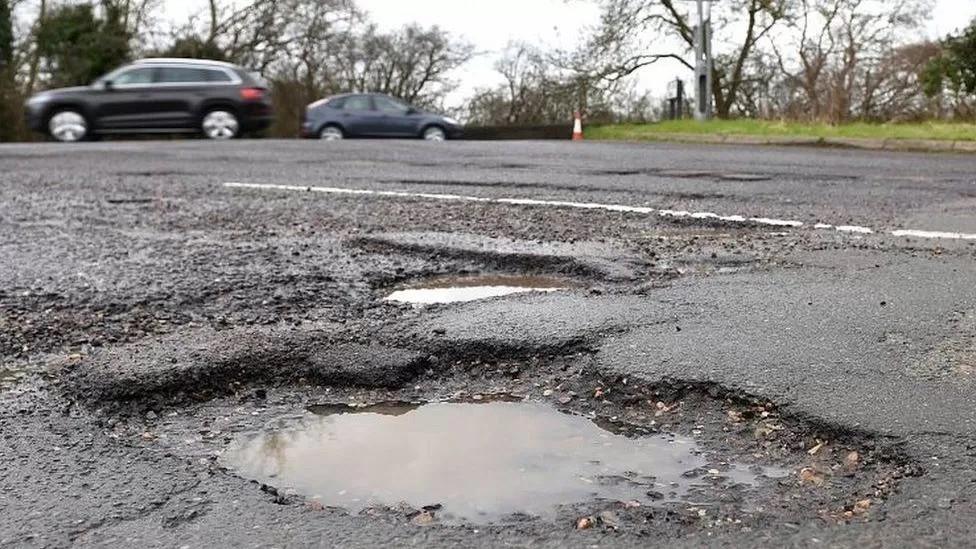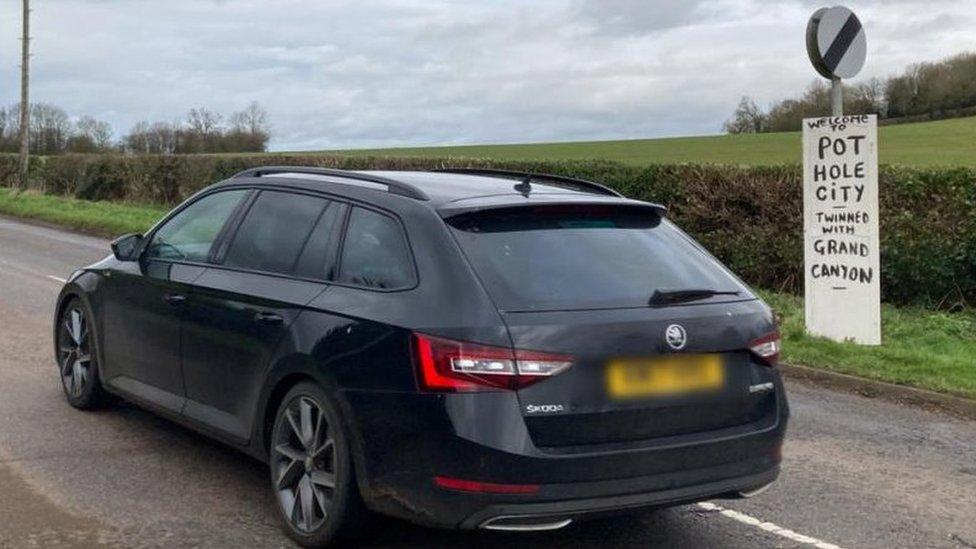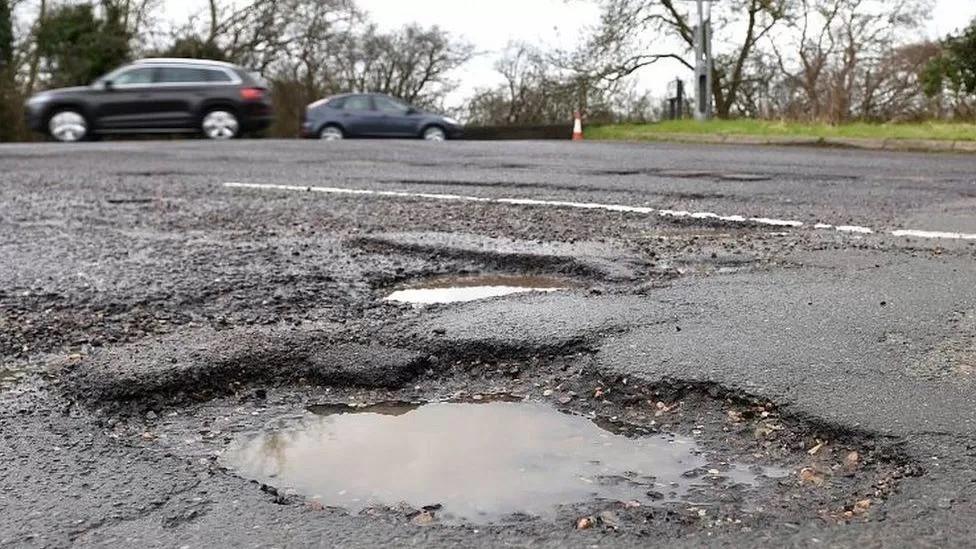Potholes: Roads in England and Wales at 'breaking point'
- Published
- comments

Roads in England and Wales are at "breaking point" due to potholes, with repairs at an eight-year high, according to a new report.
The Asphalt Industry Alliance (AIA) said councils were expected to fix two million potholes in the current financial year.
That is up 43% on the previous year and the highest annual total since 2015-16.
Ministers highlighted their pledge to provide £8.3bn of extra funding over 11 years for road improvements in England.
The AIA's annual report found that 47% of local road miles were rated as being in a good condition, with 36% adequate and 17% poor.
The survey also found that average highway maintenance budgets increased by 2.3% in the 2023-24 financial year compared with the previous 12 months.
But the impact of rising costs due to inflation meant local authorities "effectively experienced a real-terms cut".

A sign on the Daventry to Long Buckby road claims the town should be twinned with the Grand Canyon
Meanwhile, the amount needed to fix the backlog of local road repairs has reached a record £16.3bn, up 16% from £14bn a year ago.
AIA chairman Rick Green said: "Local authorities have a bit more money to spend this year but the impact of rising costs due to inflation means they have actually been able to do less with it.
"Couple this with the effects of the extreme weather we are increasingly facing, and the result is that the rate at which local roads are suffering is accelerating towards breaking point."
Depending on their size, potholes can cause significant damage to vehicles and pose a danger motorists, cyclists and pedestrians.
Although small potholes rarely cause major accidents, if a vehicle hits a lot of them over time, it can lead to damage to the tyres, suspension and steering system.
In Daventry, Northamptonshire, signs have appeared from an apparently fed-up driver welcoming people to "Pot Hole City" and "Pot Holy Island".
While on the Isle of Man, a woman has planted daffodils in potholes, hoping the "guerrilla gardening" will hammer home the problem.
In October 2023, the government announced it would provide the £8.3bn of extra funding for local road improvements.
This was part of the Network North strategy to use money saved by scrapping the planned extension of HS2 north of Birmingham.
Mr Green said: "There's still a mountain to climb when it comes to fixing our local roads.
"While it's great that English local authorities should be getting more money from the government through its Network North funding, it's clearly not going to be enough to halt the decline."
AA president Edmund King added: "Our breakdown data shows that 2023 was the worst year for potholes for five years.
"Arguably the road network is a local council's biggest asset, but not enough planned investment and repairs are being made to make streets safer and smoother for drivers and those on two wheels."
A Department for Transport spokesperson said the £8.3bn spending pledge was evidence the government was "taking decisive action to resurface roads and fix potholes".
They added: "In addition, we have made £150m available for local authorities right now meaning funding for most authorities has increased by almost a third compared to last year, with a further £150m to follow in the coming financial year."
Related topics
- Published16 March 2024

- Published15 January 2024
